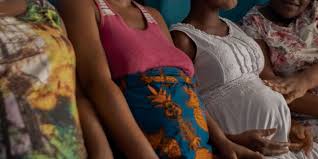News Investigators/ Stakeholders in the health sector have hailed the Federal Government’s free Caesarean Section (C-Section) initiative for pregnant women, describing it as a critical move toward reducing preventable maternal deaths.
The stakeholders commended the programme while speaking with the News Agency of Nigeria (NAN) on Sunday in Abuja.
NAN reports that the Federal Government unveiled a nationwide free C-Section initiative aimed at reduce Nigeria’s alarming maternal mortality rates.
Prof. Muhammad Pate, the Coordinating Minister of Health and Social Welfare, announced the initiative at the three-day Health Sector-Wide Joint Annual Review (JAR) which ended on Friday.
According to him, under the initiative, C-sections and essential maternal care would be provided free of charge to eligible women across the country, targeting areas with the highest maternal deaths.
Ejike Oji, a maternal and reproductive health advocate, emphasised the need for a holistic approach to ensure the programme’s success.
“When I conceptualised the Midwifery Service Scheme years ago, I was disheartened by the high maternal mortality rate.
“Nearly 80 per cent of women deliver in rural areas where skilled attendants are scarce, making them vulnerable if complications arise.”
Mr Oji said with free C-sections, women could receive timely surgical intervention without financial strain.
He stressed that public education and community engagement were essential to reach these women before emergencies occurred.
Mr Oji, who is the Chairman, Association of the Advancement of the Family Planning (AAFP), stressed the need for an informed healthcare workforce and better infrastructure, particularly in rural Primary Healthcare Centres (PHCs).
He called for community awareness campaigns to inform women about the availability of free C-sections, as well as the strengthening of referral systems to facilitate timely transfers from rural PHCs to better-equipped facilities.
“This programme will only succeed if the referral system is efficient, linking primary centres to secondary and tertiary facilities,” he noted.
Mr Oji also emphasised the media’s role in raising awareness and mobilising communities.
He added that delivering information to rural areas through accessible media channels would ensure that families understand the availability of free C-sections and seek timely care.
On his part, the Managing Director, Society for Family Health, Omokhudu Idogho, said that the policy was transformative and removed financial barriers.
He, however, said that it was more critical to get women into facilities in the first place through Antenatal Care (ANC) and community outreach.
According to him, without access to comprehensive ANC, the healthcare system cannot anticipate complications requiring C-sections.
To bridge the gaps, he suggested that healthcare organisations continued working within communities to remove barriers, especially in rural areas.
He highlighted the importance of addressing delays in recognising danger signs, reaching health facilities, and receiving care at facilities as the “three delays” that lead to maternal mortality.
Mr Idogho also pointed out the significance of integrating private healthcare providers into the programme, as a substantial number of Nigerians relied on private healthcare services.
He suggested a voucher system to allow women to access C-sections at private facilities if needed.
“Incorporating the private sector is essential to expand reach.
“If we address both public and private sectors effectively, we can see up to a 70 per cent reduction in maternal mortality, transforming maternal health in Nigeria.”
NAN
